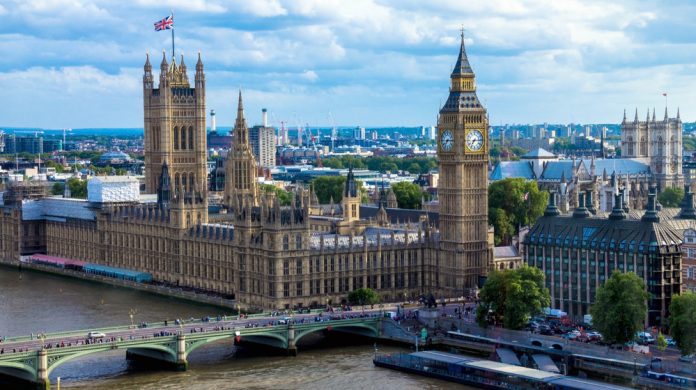A report into the societal costs of gambling by the Office of Health Improvement and Disparities published earlier this year, which may have influenced the outcomes of the Gambling Act review, was harshly criticised by Regulus Partners earlier this week.
In a critique of the study – and also of the findings of Public Health England, the predecessor to the OHID – gambling strategic advisory firm Regulus accused the public body of leadership bias against the industry.
Skewed stats and Swedish studies
In Regulus’ view, the financial conclusions of the report are not based on sound evidence and methodology, and in some cases have omitted findings from other bodies which cast the industry in a better light.
For example, the OHID argument that gambling costs the UK £508m a year via gambling-associated depression was taken apart by Regulus, which asserted that a causal relationship between betting and depression cannot be determined, due to the mental health issue having ‘multi-directional’ drivers.
Additionally, the report was criticised for failing to consider or mention NHS Health Survey studies which found that ‘non-problem gamblers’, who make up ‘around 90% of people who gamble’, are less likely than the general population to suffer depression.
Looking over the OHID’s conclusions, Regulus asserted that the body’s research and conclusions were underpinned by several ‘clear and obvious errors around homelessness, the extent of problem gambling, and one of the review’s most contentious issues, gambling related suicide.
Back in February, the OHID issued its estimate that between 117 and 496 suicides occur in the UK each year due to gambling, costing society between £241.1m-to-£961.7m.
Regulus argued that this statistic is flawed due to its basis in a Swedish study – the application of the findings from the Nordic nation to English problem gambling were condemned as one of many ‘unscientific assumptions’ made by the OHID.
The research in question examined the records of 2,099 Swedish patients classed as ‘pathological gamblers’ receiving hospital treatment between 2005 and 2016.
Definition disparities
Another major ‘assumption’ flagged by Regulus is that the PGSI definition of ‘problem gamblers’ was equated by the OHID to the Diagnostic and Statistical Manual of Mental Disorders, Fourth Edition (DSM-IV) definition of ‘pathological gamblers’.
As a result of this association, the OHID based its highest estimation of suicide on the assumption that Swedish patients with a recognised psychiatric disorder are at the same risk of suicide as English PGSI-defined problem gamblers who do not have such a disorder but do suffer from gambling harm.
“The logical implication of the OHID approach is therefore, that severity of both gambling problems and psychiatric disorder has no bearing on suicide risk,” Regulus asserted.
“While analogies are imprecise, this is conceptually similar to assuming that people who are overweight have the same health risks as people who are clinically obese.”
It was however noted that the lower estimation made by the PHE/OHID was based on sounder rationale using the Swedish survey – due to the 117 figure is based on the application of Swedish mortality ratios to those in England who have been diagnosed as having a pathological gambling disorder.
However, Regulus maintained that both high and low estimates are ‘unreliable’ for several reasons, the first of which being that people receiving hospital treatment for Gambling Disorder are not representative of all people with a gambling disorder.
On this note, Regulus added that people seeking treatment for gambling disorders will typically have more severe cases that cannot be applied across the full demographic of bettors, and that those currently in treatment may not be representative of all those actively seeking treatment.
Underlying bias?
As mentioned at the start of this article, perhaps the most damning conclusion Regulus came to was that the studies conducted by the OHID and its PHE predecessor were underpinned by an anti-industry agenda.
For example, the group pointed to examples of the PHE having called for gambling to be recognised as a ‘public health issue’ in the past. Of distinction, Marguerite Regan, Project Leader for both the PHE and OHID reviews, has previously stated that there is a need for ‘a compelling narrative’ to ‘ support advocacy and action” on gambling.
Regulus ascertained: “We have identified a number of instances where those involved with the project appear to reveal the presence of underlying agendas and predetermined views on the desirability of gambling as a legitimate pastime for adults.
“It seems reasonable to assume that the presence of such a priori views served to colour the analysis undertaken by both sets of research teams.”
The firm expressed that this could lead one to agree with the UKGC’s remark that the report was conducted “to ensure gambling is considered a public health issue”, and not to provide sound evidence to influence policy decisions.
Regulus asserted in its critique that the UK Gambling Commission’s (UKGC) assessment of Public Health England’s (PHE) report could be easily applied to the OHID version – the OHID took over remit for the study when it replaced PHE in October 2021.
The UKGC commented at the time: “Given the (mostly acknowledged) limitations, it’s surprising that the £1.27bn cost of the gambling industry has been promoted by PHE as one of the main findings from the entire review.
“This may be due to its status as being one of the few conclusions that is ‘new’, a desire to emphasise the need for further research to strengthen the evidence base or intending to ensure gambling is considered as a public health issue.”












